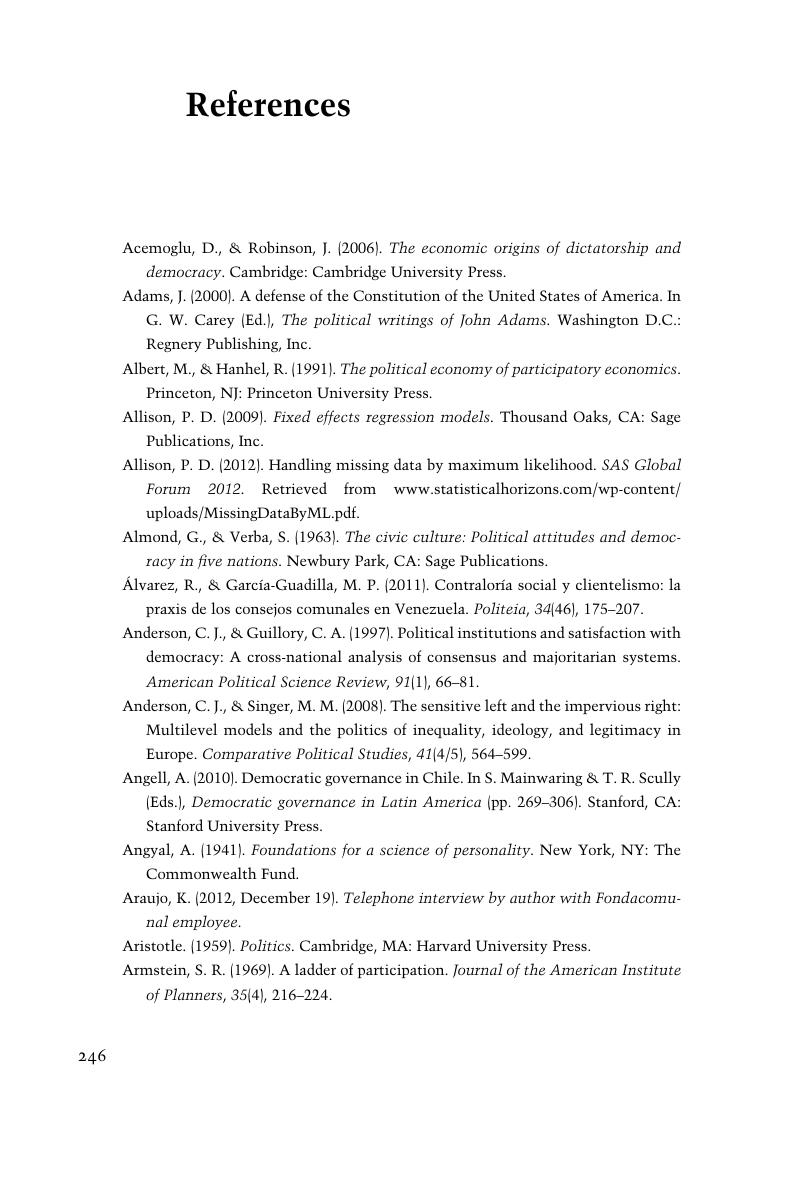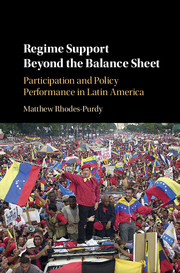Book contents
- Regime Support Beyond the Balance Sheet
- Regime Support Beyond the Balance Sheet
- Copyright page
- Dedication
- Contents
- Figures
- Tables
- Acknowledgments
- 1 Introduction
- 2 Conceptualizations and Existing Explanations of Regime Support
- 3 Participatory Opportunities, Efficacy, and Regime Support
- 4 Attitudinal Antecedents of Regime Support
- 5 Participatory Populism
- 6 The Other Liberalism
- 7 Conclusion
- References
- Index
- References
References
Published online by Cambridge University Press: 06 October 2017
- Regime Support Beyond the Balance Sheet
- Regime Support Beyond the Balance Sheet
- Copyright page
- Dedication
- Contents
- Figures
- Tables
- Acknowledgments
- 1 Introduction
- 2 Conceptualizations and Existing Explanations of Regime Support
- 3 Participatory Opportunities, Efficacy, and Regime Support
- 4 Attitudinal Antecedents of Regime Support
- 5 Participatory Populism
- 6 The Other Liberalism
- 7 Conclusion
- References
- Index
- References
Summary

- Type
- Chapter
- Information
- Regime Support Beyond the Balance SheetParticipation and Policy Performance in Latin America, pp. 222 - 245Publisher: Cambridge University PressPrint publication year: 2017



